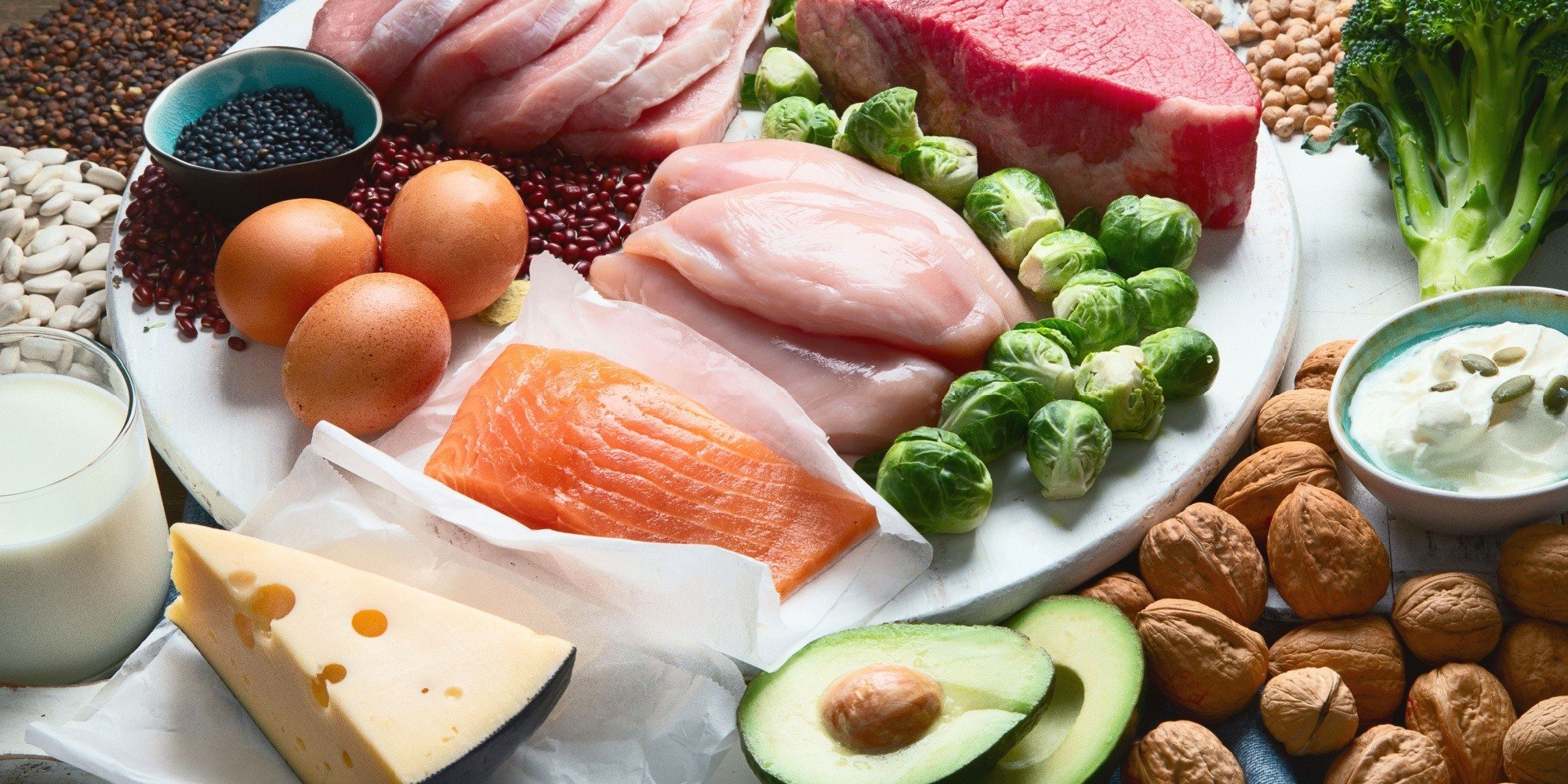The Ultimate Muscle-Building Diet: What to Eat for Maximum Gains
Jan 8, 2025 mindpumpWhen it comes to building muscle, hitting the gym is only half the battle. The other half? What you put on your plate. Your diet plays a crucial role in maximizing gains, and eating strategically can make the difference between good and great results. Here’s your ultimate guide to the muscle-building diet.
Protein: Build Muscle
You always hear people harp on the importance of protein. It’s the macronutrient that’s going to help with muscle growth. Your body and muscles need amino acids to repair and build muscle. You break down muscle in the gym and need protein to grow it back. Aim for 1 gram of protein per pound of your target weight daily. For an individual with a target weight of 180 pounds, that’s 180 grams of protein. It’s worth mentioning that protein isn’t just muscle building. It’s also used for enzymatic processes in the body. So, the importance translates to everyday living as well.
Top protein sources include:
-
Chicken breast: High in protein, low in fat.
-
Eggs: Packed with essential amino acids and healthy fats.
-
Greek yogurt: A great mix of protein and probiotics.
-
Fish: Salmon and tuna provide protein plus omega-3 fatty acids.
-
Whey protein: A convenient option for post-workout recovery.
Carbs: Fuel
You can use fats for fuel, but carbohydrates are the preferred energy source. That is because it is stored in the muscles and liver and can be used the quickest particularly towards strength training. When we do short bursts of exercise, carbohydrates can break down and quickly supply fuel as glucose towards the workout. Most people feel sluggish going into the gym if they don’t have enough carbohydrates in their body. Because it also fills up the glycogen stores in the muscles, it can provide cushion for heavier lifts by pulling in more water which will surround the joints and tissues.
Best carb sources for muscle-building:
-
Sweet potatoes: Nutrient-dense and great for post-workout meals.
-
Oats: Slow-digesting carbs perfect for breakfast.
-
Rice: White or brown rice fuels heavy lifting sessions.
-
Sourdough bread: A quick and versatile carb source with gut health benefits.
-
Fruits: Provide quick-digesting carbs and micronutrients.
Fats: Hormone Health
Fats aren’t just an energy source. In fact, I’d say their most important function is for hormones. Eating enough fats ensures you have a good balance of testosterone, which is critical for muscle growth and overall health. We want to make sure at least 30% of our diet is coming from fats (generally speaking this is a minimum 55 grams of fat per day).
Incorporate these healthy fats:
-
Avocado: Packed with heart-healthy monounsaturated fats.
-
Nuts and seeds: Almonds, walnuts, and chia seeds are nutrient powerhouses.
-
Olive oil: A staple for healthy cooking.
-
Fatty fish: Salmon and mackerel for omega-3s.
-
Nut butters: A calorie-dense option that’s great in moderation.
Micronutrients: Don’t Neglect the Details
Now that we’ve discussed macronutrients, we can’t neglect the micronutrients. The issue with social media in fitness these days is most people only see these macros as numbers. They think if they hit those numbers regardless of food quality, they’re good to go. Quality matters.
Sure, we can get carbs and fats from a candy bar, but what nutrition quality is in there? Instead opt for getting your fiber in. This will help with overall gut health which will in turn allow for better absorption of your macronutrients and optimize your progress. Foods like berries, oatmeal, beans, lentils, and avocado all have good fiber content. Add a variety of fruits and vegetables to also get fiber but necessary micronutrients. Leafy greens, berries, apples, and any colorful vegetable or fruit will do. The more color they have, the more polyphenols they provide.
When and How Much to Eat
Meal timing can impact your energy levels and recovery. Start with these guidelines:
-
Pre-workout: A mix of carbs and protein (e.g., chicken and rice).
-
Post-workout: Prioritize fast-digesting protein and carbs (e.g., whey protein with a banana or a lean cut of meat with rice or beans).
-
Throughout the day: make sure to have a 30-40 gram serving of protein with each meal. Fats can be included in all other meals not around the workout. This isn’t a must but if you want to optimize muscle growth, prioritize protein and carbs around the workout.
Hydration
Aim for at least half your body weight in ounces of water daily, and more if you sweat heavily during workouts.
Sample Muscle-Building Day
-
Breakfast: Scrambled eggs, oats with berries, and a banana.
-
Snack: Greek yogurt with a handful of nuts.
-
Lunch/pre workout: Grilled chicken, rice, and steamed broccoli.
-
Post-workout: Whey protein shake with a banana.
-
Dinner: Salmon, sweet potatoes, and asparagus.
-
Snack: Cottage cheese with a drizzle of honey.
You don’t need to eat frequent meals. Go with whatever you can best adhere to. The bigger focus is to at least try spacing out protein every 3-4 hours to maximize the muscle protein synthesis signal.







